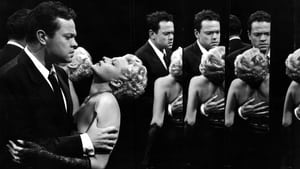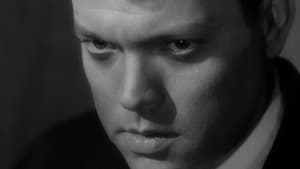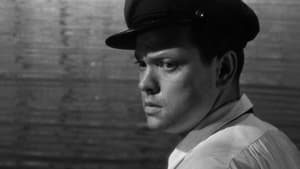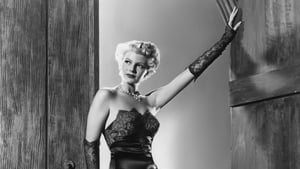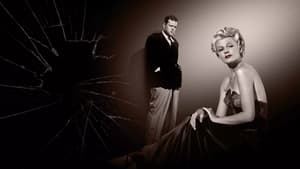Contact: info@alwanfilm.com
Video Sources 0 Views
- Watch trailer
- The Lady from Shanghai

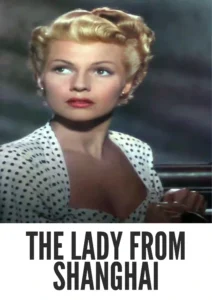
Synopsis
Table of Contents
ToggleReview: The Lady from Shanghai 1947 Colorized – A Stylish and Twisty Film Noir Gem

Introduction
The Lady from Shanghai, released in 1947, is a captivating film noir directed by Orson Welles. Renowned for its stylish visuals, complex narrative, and memorable performances, this classic thriller continues to intrigue audiences with its tale of love, betrayal, and murder. In this review, we’ll delve into the twisted world of The Lady from Shanghai and explore its enduring appeal in the realm of film noir.
Check The Full Colorized Movies List
Check Our Colorized Movies Trailer Channel
Understanding The Lady from Shanghai 1947 Colorized: Director, Cast, and Genre
Directed by the legendary Orson Welles, The Lady from Shanghai features an ensemble cast led by Welles himself alongside Rita Hayworth and Everett Sloane. The film falls squarely within the film noir genre, known for its dark themes, morally ambiguous characters, and atmospheric cinematography.
Exploring the World of The Lady from Shanghai 1947 Colorized: Plot and Characters
The Lady from Shanghai follows the story of Michael O’Hara, a rugged Irish sailor who becomes entangled in a web of deceit and murder when he falls for the enigmatic Elsa Bannister. As O’Hara becomes embroiled in the Bannister family’s dark secrets, he finds himself drawn into a dangerous game of cat and mouse where nothing is as it seems.
The Art of Film Colorization
While The Lady from Shanghai was originally filmed in black and white, its early colorized version adds a new layer of depth to its stylish visuals. The colorization process enhances the film’s vibrant cinematography and captures the allure of its exotic locations with striking clarity.
Early Colored Films: A Brief History
The history of early colored films is marked by innovation and experimentation as filmmakers sought to enhance the visual appeal of their movies. From hand-tinted frames to pioneering technicolor processes, the evolution of colorization techniques transformed the cinematic landscape, offering audiences a new way to experience the darkness and intensity of film noir.
The Lady from Shanghai (1947) and Its Early Colored Version
The decision to release The Lady from Shanghai in a colorized format was made with the intention of immersing audiences in the film’s vibrant visuals and enhancing its visual impact. While some purists may prefer the original black and white version, the early colorized edition of The Lady from Shanghai adds a new layer of depth to its stylish cinematography and captures the allure of its exotic locations with breathtaking clarity.
The Debate Over Film Colorization
The debate over film colorization continues to divide audiences and industry professionals alike. While some argue that colorization breathes new life into classic films and makes them more accessible to modern audiences, others maintain that it compromises the artistic integrity of the original work. As technology advances and filmmaking techniques evolve, the debate over colorization remains a topic of ongoing discussion within the film community.
Examining The Lady from Shanghai (1947) as an Early Colored Film
Viewing The Lady from Shanghai in its early colorized iteration offers audiences a fresh perspective on its stylish visuals and exotic locations. The colorization process enhances the film’s vibrant cinematography and captures the allure of its exotic locales with stunning clarity. As viewers are drawn into the twisted world of Michael O’Hara and Elsa Bannister, they are treated to a visual feast that immerses them in the seductive glamour of film noir.
Influence and Legacy: The Lady from Shanghai 1947 Colorized’s Impact on Cinema
The Lady from Shanghai is widely regarded as a masterpiece of the film noir genre that continues to influence filmmakers and inspire new generations of cinephiles. Its stylish visuals, complex narrative, and memorable performances have left an indelible mark on cinema, shaping the way thrillers are made and appreciated to this day.
Director’s Cinematic Legacy: Beyond The Lady from Shanghai 1947 Colorized
Orson Welles’ directorial legacy extends far beyond The Lady from Shanghai, encompassing a diverse body of work that includes acclaimed films such as Citizen Kane and Touch of Evil. As one of the most innovative filmmakers of his generation, Welles was known for his ability to craft visually stunning films that explored the complexities of the human condition with depth and nuance. The Lady from Shanghai stands as a testament to his talent and creativity, solidifying his reputation as one of the great auteurs of classic Hollywood cinema.
Themes Explored in The Lady from Shanghai 1947 Colorized
At its core, The Lady from Shanghai explores themes of love, betrayal, and deception in the shadowy world of film noir. Through its stylish visuals and morally ambiguous characters, the film offers a nuanced portrayal of the human psyche, challenging viewers to confront their own desires and motivations as they unravel the mystery at its heart.
Reception and Controversy Surrounding The Lady from Shanghai 1947 Colorized
Upon its release, The Lady from Shanghai received widespread critical acclaim for its stylish visuals, complex narrative, and memorable performances. While the decision to release the film in a colorized format sparked debate among purists, its enduring popularity has cemented its status as a timeless classic of the film noir genre.
Where to Watch The Lady from Shanghai 1947 Colorized Online
For those eager to experience The Lady from Shanghai for themselves, the film is readily available on popular streaming platforms such as Amazon Prime Video, Google Play Movies, and iTunes. Whether viewed in its original black and white format or its early colorized iteration, The Lady from Shanghai offers a cinematic experience that is both stylish and visually stunning.
FAQs About The Lady from Shanghai 1947 Colorized
1. Is The Lady from Shanghai based on a true story?
No, The Lady from Shanghai is a fictional film that explores the twists and turns of love, betrayal, and murder in the world of film noir. While the film’s storyline may draw inspiration from real-life events, its characters and plot are works of fiction.
2. Who starred in The Lady from Shanghai?
The Lady from Shanghai stars Orson Welles in the role of Michael O’Hara, a rugged Irish sailor who becomes entangled in a dangerous game of love and deceit. He is supported by Rita Hayworth, who delivers a memorable performance as the enigmatic Elsa Bannister.
3. What is the central message of The Lady from Shanghai?
At its core, The Lady from Shanghai explores the consequences of love, betrayal, and deception in the shadowy world of film noir. Through its stylish visuals and morally ambiguous characters, the film offers a nuanced portrayal of the human condition, challenging viewers to confront their own desires and motivations as they unravel the mystery at its heart.
4. Why was The Lady from Shanghai released in a colorized format?
The decision to release The Lady from Shanghai in a colorized format was made with the intention of immersing audiences in the film’s stylish visuals and enhancing its visual impact. While some purists may prefer the original black and white version, the early colorized edition of The Lady from Shanghai adds a new layer of depth to its exotic locations and captures the allure of its vibrant cinematography with breathtaking clarity.
5. What is the legacy of The Lady from Shanghai?
The Lady from Shanghai is widely regarded as a masterpiece of the film noir genre that continues to captivate audiences with its stylish visuals, complex narrative, and memorable performances. Its enduring popularity has cemented its status as a timeless classic of cinema, inspiring filmmakers and cinephiles around the world.
6. Are there any sequels or remakes of The Lady from Shanghai?
No, there have been no official sequels or remakes of The Lady from Shanghai. However, the film’s enduring popularity has inspired countless reinterpretations and homages in various media. Nonetheless, none have captured the stylish visuals and complex narrative of the original 1947 classic.
7. Where can I watch The Lady from Shanghai online?
For those eager to experience The Lady from Shanghai for themselves, the film is readily available on popular streaming platforms such as Amazon Prime Video, Google Play Movies, and iTunes. Whether viewed in its original black and white format or its early colorized iteration, The Lady from Shanghai offers a cinematic experience that is both stylish and visually stunning.
Conclusion
In conclusion, The Lady from Shanghai (1947) stands as a stylish and twisty gem of the film noir genre that continues to captivate audiences with its intricate plot, stylish visuals, and memorable performances. Whether viewed in its original black and white format or its early colorized iteration, Orson Welles’ insightful direction and the stellar performances of the cast offer a cinematic experience that is both captivating and visually stunning. As viewers are drawn into the dark and twisted world of Michael O’Hara and Elsa Bannister, they are treated to a visual feast that immerses them in the seductive glamour of film noir. The Lady from Shanghai remains a timeless classic that continues to enthrall and inspire audiences around the world.
